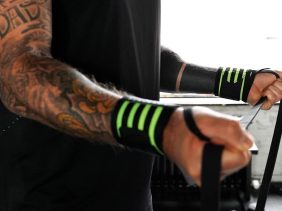5 Ways a Marathon Runner Finds His Fast
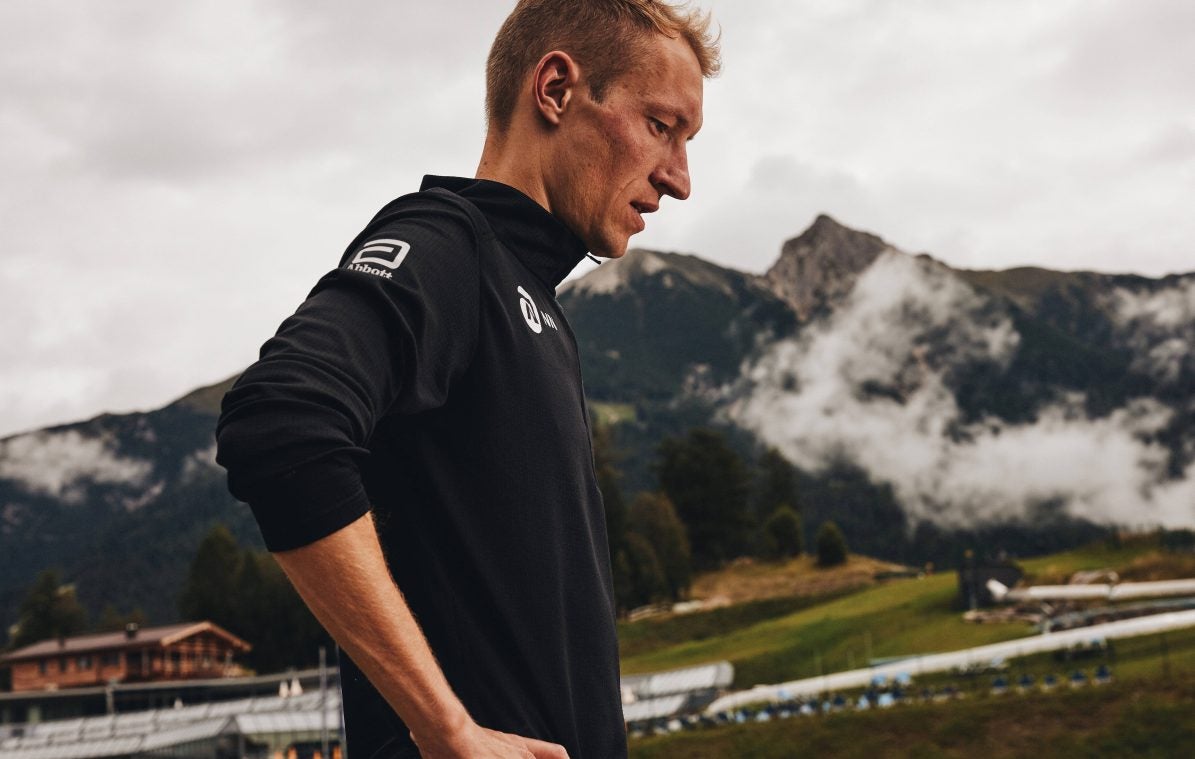 foodspring
foodspring
Among the more bizarre things that have happened to me was sitting in Seefeld in Tirol, in western Austria, and eating bitterballen—a kind of deep-fried meatball famous in my home country of The Netherlands—next to Björn Koreman, the night before running alongside the Dutch running phenomenon and my personal sports idol.
Adding to the surreality was how easygoing and nice he was, to the point that it felt quickly like hanging out with a friend. For instance, he offered to pick up a photographer from the airport at 22.00 (‘No Björn, you really need to sleep!’), discussing the best dinner places in this area that he’d come to know very well, driving us around in Seefeld, going location scouting by bike.
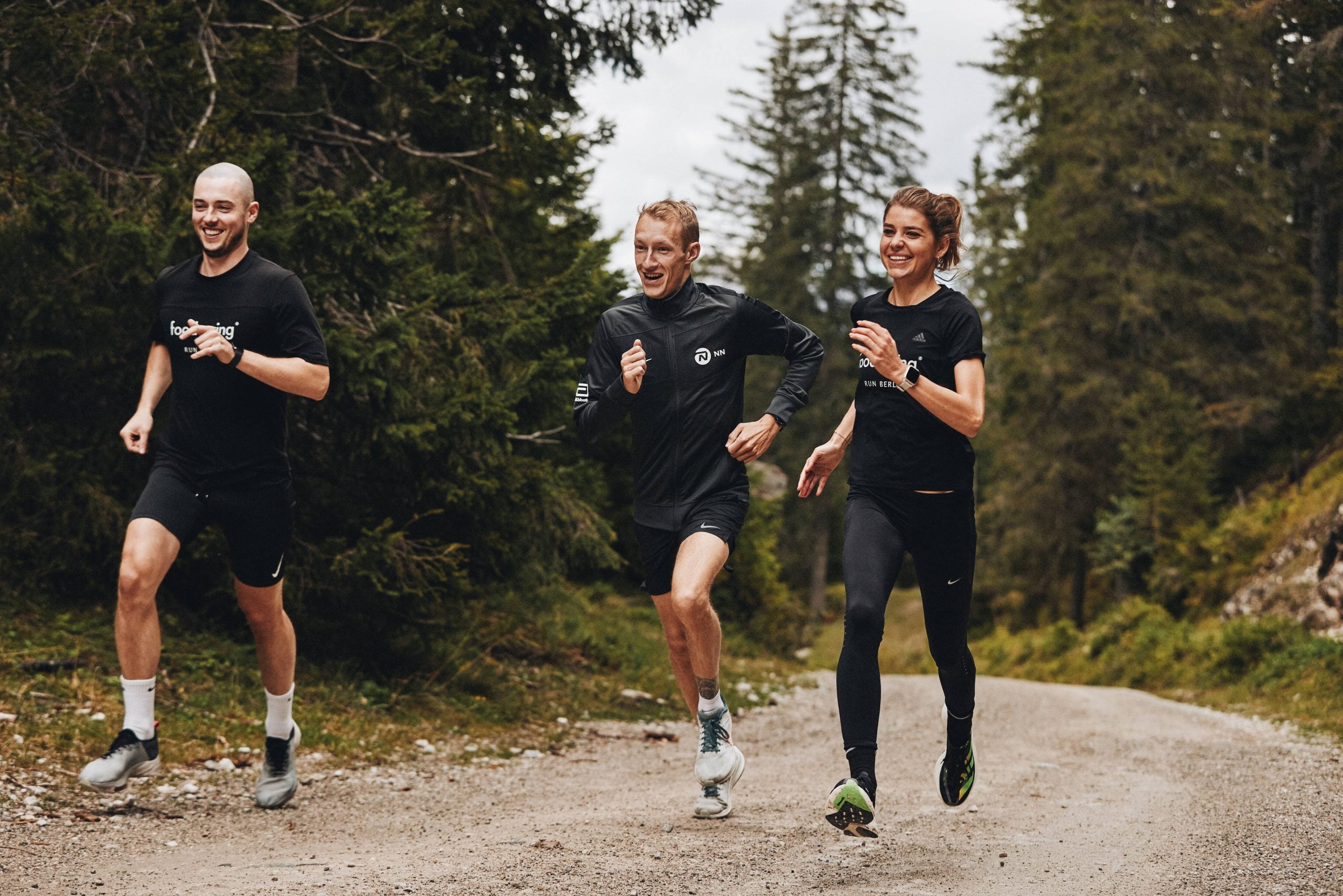
It helped that Björn and I have a few things in common. We are both from the same small European country, both started running seriously later in life—Björn at age 22, me at 16—and we both like to run with friends. We even lined up at two of the same marathons: Eindhoven 2019 and Rotterdam 2022. This, however, is about where the similarities end. My time for the Rotterdam marathon? 3:28:11. Björn’s time? 2:10:32. Which explains the crucial difference: only one of us is an Olympic marathon hopeful.
Related: Ready to tackle your first marathon? We’ve got a plan for that!
Running through the woods, just a few weeks before the 2022 Berlin Marathon, we talked about the next few races we both had plans, some tactics (a favourite topic of distance runners) and the goal we both have of running an ultra marathon (another similarity!). After a couple days of chatting with Koreman during runs, meals, and downtime, I came away with five tips that could make me—and you—a better runner.
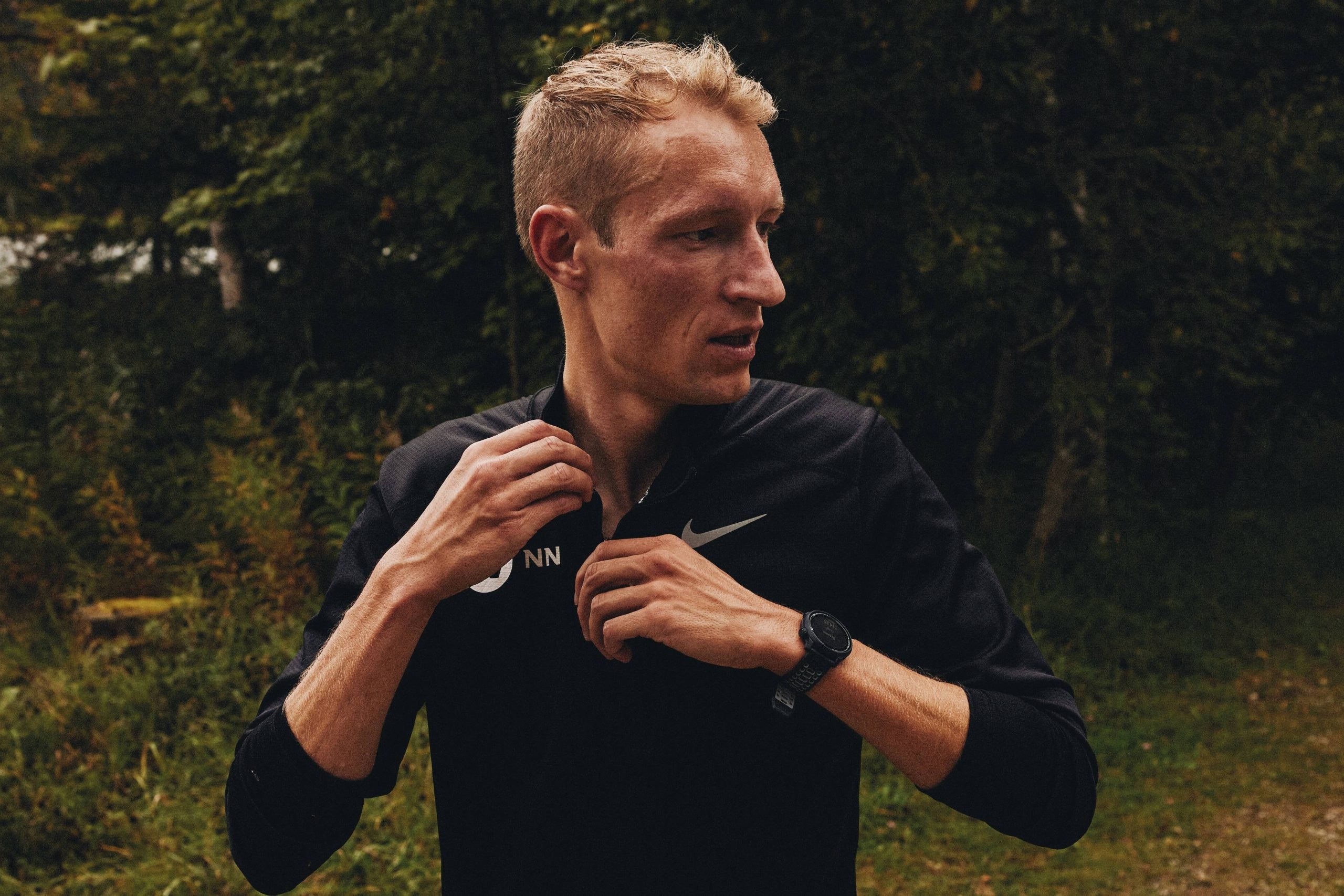
- Björn takes an ice bath after his runs. The cold helps his legs recover, and he follows it with a shower. On the day we were together, he took advantage of a creek that ran behind the hotel to take his cold plunge (whilst eating the white chocolate & almond foodspring protein bar!) before scooting to the hotel for a warm shower to avoid catching a cold.
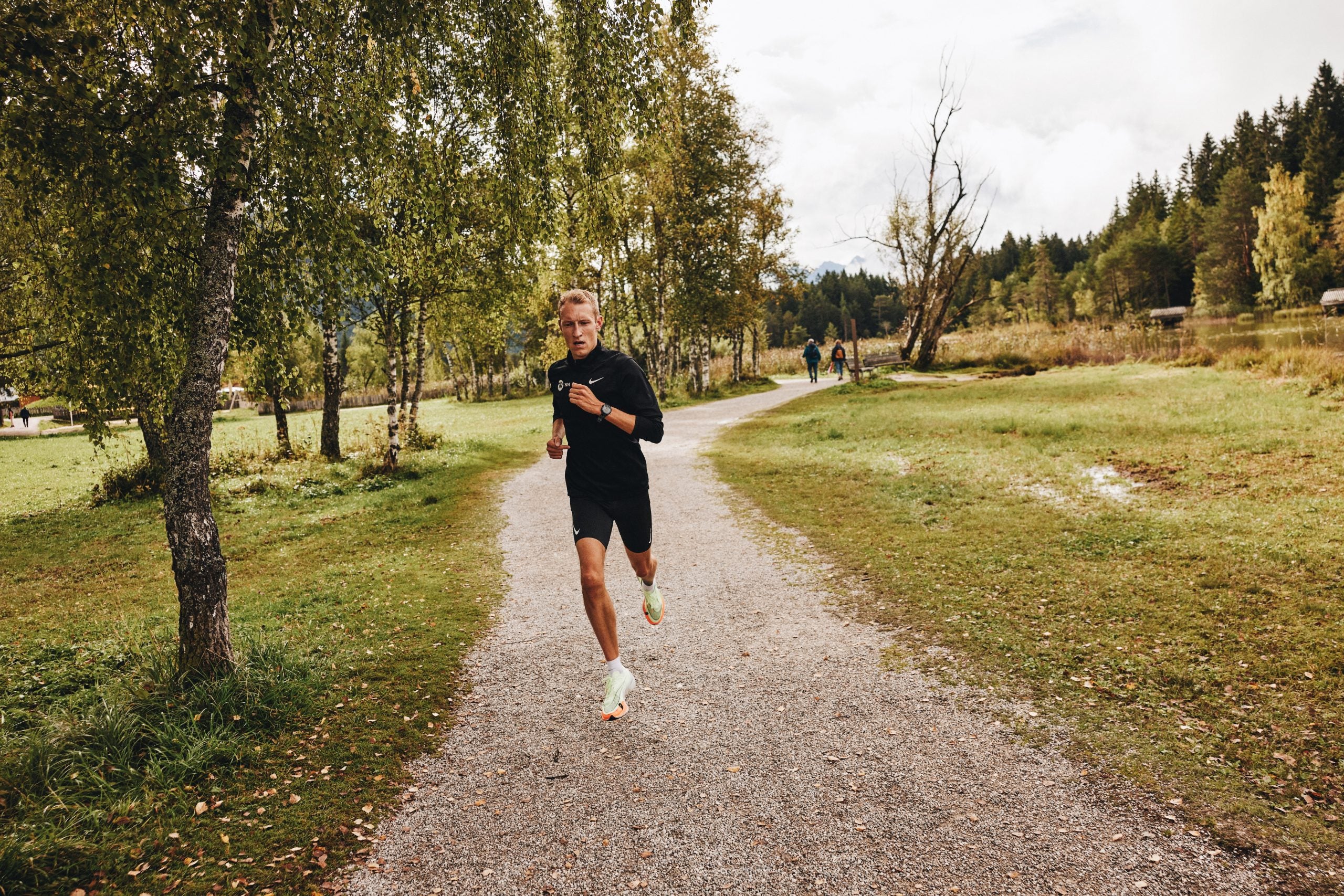
2. He puts vaseline on his legs against the rain. Björn does this to create an extra layer of protection on top of the skin, so the rain glides off. He says it’s really important to do this on your knees and hamstrings since it protects against the cold. Bonus: vaseline helps prevent chafing.
3. Björn doesn’t stretch. It doesn’t seem to have affected his performance, and he hasn’t sustained any injuries that have kept him out of running. The lesson here isn’t that you shouldn’t stretch, of course. It’s that you should do what works best for you. If you’re stiff from training sessions, or even a long road trip or cross-country train ride, you might feel like need to do some muscle tension release. Listen to your body.
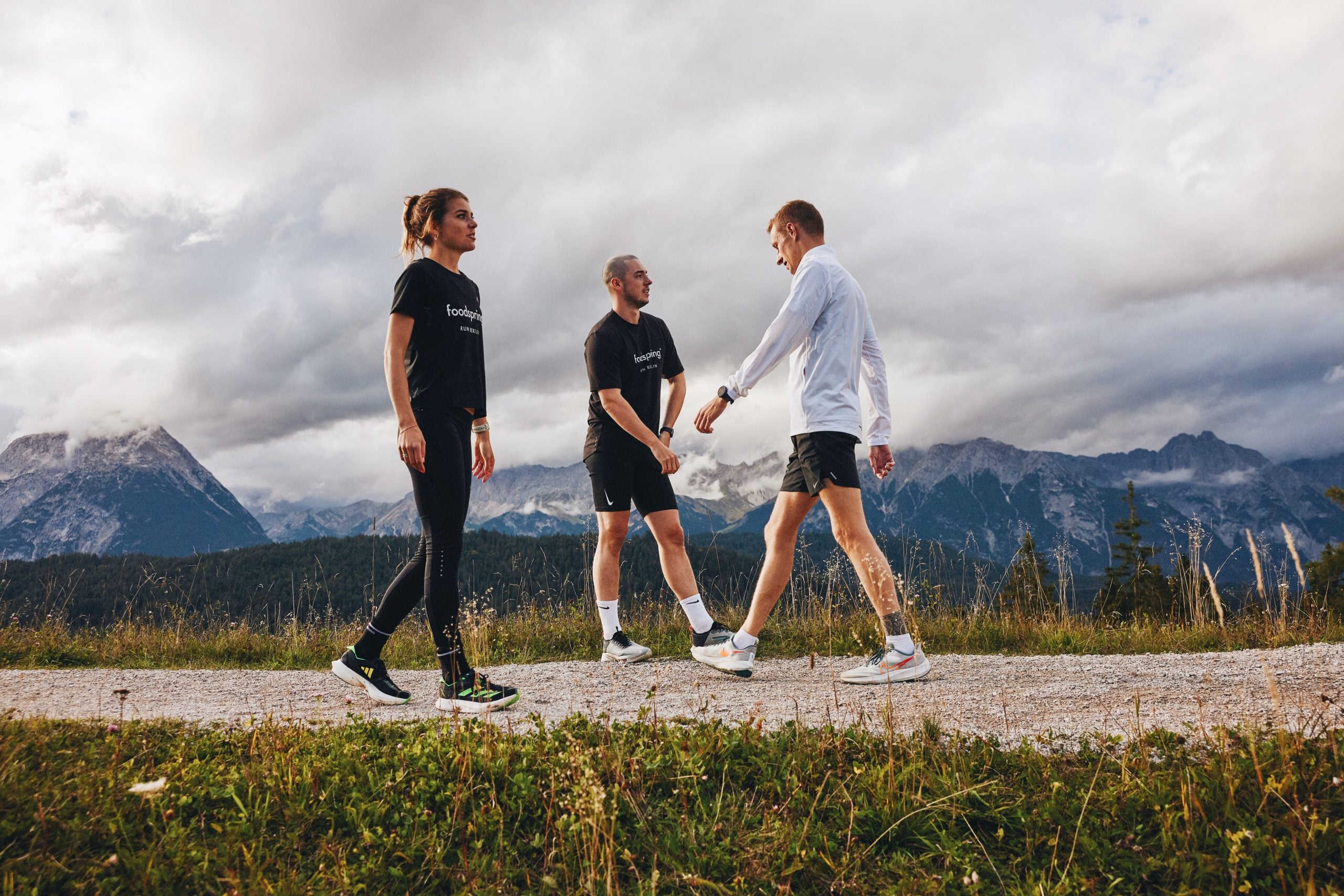
4. Running is most fun with a crew. Björn never really trains by himself. He usually has a friend running with him, or biking beside him, especially on longer runs where he needs nutrition. I never really realised that marathon running for me, more than anything, feels like a teamsport. The way we hype each other up the weeks before a big race, offering our fellow runners energy gels and water during the race. Most of the time, we’re in it together.
5. Carb loading is real. The meal Björn eats the night before the race emulates that of NN Running Team founder and teammate, Eliud Kipchoge, a runner from Kenya who is one of the greatest marathoners of all time (so you know the advice must be good). Most Kenyan marathon runners eat fries the night before running the marathon, Bjorn says. You can’t really go wrong with fries, which are fairly easy on the stomach, and are high in carbs, which keep you going during those long distances. Plus all that salt will make sure you’re hydrating enough!
Read more about running from foodspring:
- Björn Koreman is Talented, Fast, and Ready to Run
- 7 Exercises to Improve Your Running Technique
- 8 Post-Run Recipes for More Energy
- First-time Runner? 4 Ways to Make the New Sport Stick
Sources for this article
We at foodspring use only high-quality sources, including peer-reviewed studies, to support the facts within our articles. Read our editorial policy to learn more about how we fact-check and keep our content accurate, reliable, and trustworthy.



























